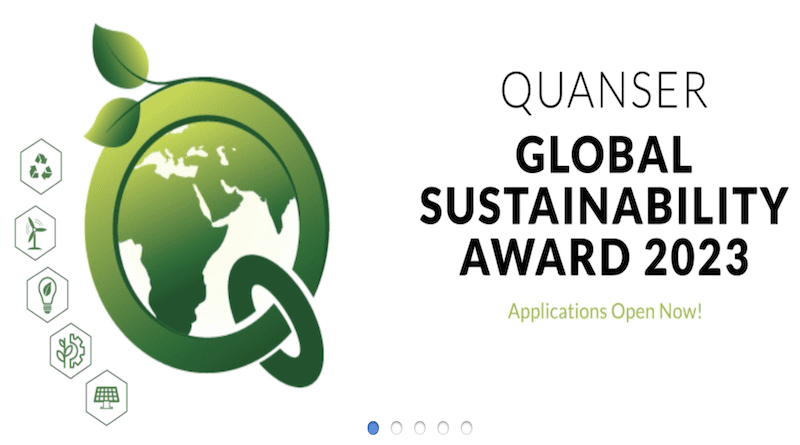IFEES And The GEDC Support Quanser Global Sustainability Award 2023 – OpEd
By Peter Tase
n 2022, the International Federation of Engineering Education Societies (IFEES), Global Engineering Deans Council (GEDC) and Quanser partnered to launch the Quanser Global Sustainability Award to celebrate excellence in sustainability education.
To encourage the development of initiatives that prepare students to discover and create sustainable engineering practices throughout their careers. We believe that engineering interventions can create solutions for a circular economy – an approach that can work across all technical disciplines.
Quanser wants to recognize any initiative, anywhere in the world, that focuses on developing engineering skills at the undergraduate or master’s level to address one or more of the United Nations Sustainable Development Goals (UN SDGs).
This alliance will require the initiative to be innovative, with a clear focus on learning outcomes. It must also have a measurable impact on students’ understanding of sustainable development and have the potential to be transferable and scalable to ensure that it can be extended to improve learning for future generations:
Gain global visibility to propel your initiative further. Promote your initiative globally and generate support to expand your impact.
Make an impact in engineering education worldwide. As part of the engineering community, you are encouraged to create solutions to address global challenges such as climate change, biodiversity loss, waste and pollution. This is an opportunity to Win a Cash Prize. Organizers will supply the winner (or winning team representative) with one complimentary registration, flight, and hotel accommodation to attend the WEEF/GEDC 2023 Conference in Monterrey, Mexico, held October 23 – 27, 2023. And a cash prize of $5,000 USD.
Eligibility
Any initiative focused on developing undergraduate or master’s-level engineering skills to tackle one or more of the United Nations Sustainable Development Goals (UN SDGs). The initiative must be innovative and include a demonstrable alignment to learning outcomes. In addition, the initiative must have a measurable impact on the student’s understanding of sustainability and have the potential to be transferrable and scalable, to ensure that it can expand to enhance the learning of future generations.
Application Stages
Round 1 – Provide a summary of the initiative focusing on the Round 1 criteria, 500 words maximum through the Web Form at the bottom of this page.
Round 2 – Project description addressing both Round 1 and Round 2 criteria (2000 words maximum), with evidence to support claims about outcomes and impact through email: [email protected]
IFEES and GEDC plan to continue and further the work of Engineering Educators. All IFEES and GEDC members are committed with new organizations that are concerned with improving engineering education—especially for the good of the planet; “One Planet, One Environment, One Chance.” We all need to collaborate globally for the sustainability of future generations.
IFEES has come out of a very successful WEEF-GEDC event (www.weef-gedc2018.org) where students, faculty, deans, industry, research laboratories, multi-lateral organizations, and K-12 teachers were energized and embraced the disruptive mindset of Peace Engineering and Diplomacy. During the conference, IFEES – GEDC celebrated the birth of Big Science in New Mexico, USA, that changed the world, and looked at the future where engineering no longer just encompasses the traditional concept. A sustainable and peaceful future requires a new engineering education mindset that integrates social, humanistic, health, environmental, financial, entrepreneurial, arts and many other disciplines for the good of all living species.
A core group of people passionate about forwarding the Peace Engineering initiative are actively engaging on a regular basis and publishing continuous updates on a new website peace-engineering.org. This tradition continues and IFEES thrives to support and internationalize the Engineering Education field of study and innovate Corporate Social Responsibility mindset.

